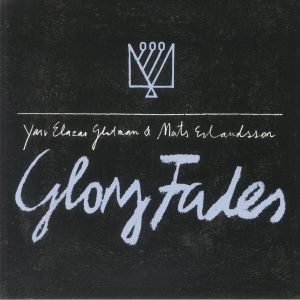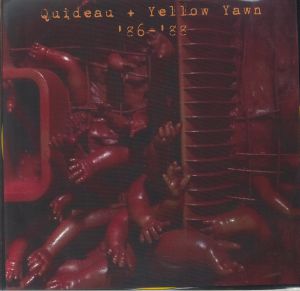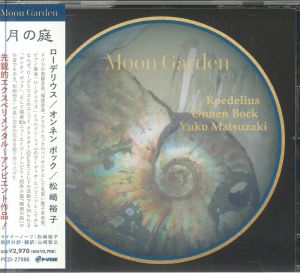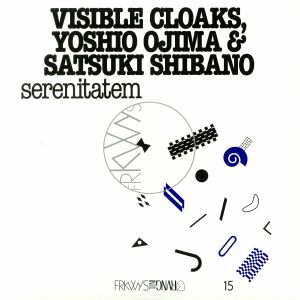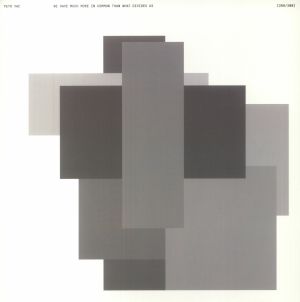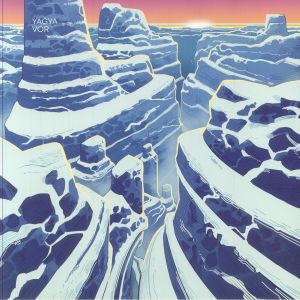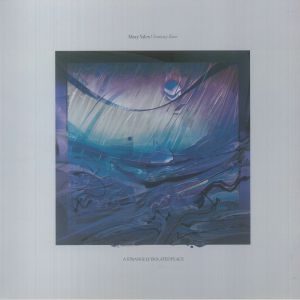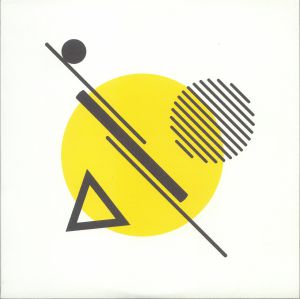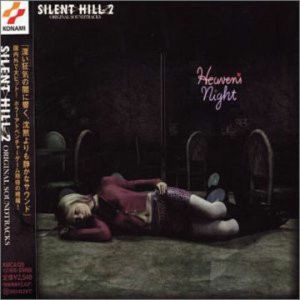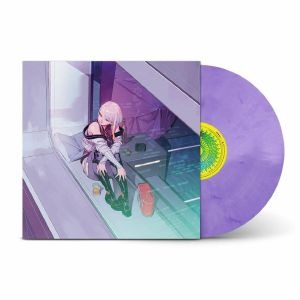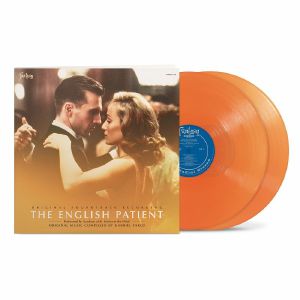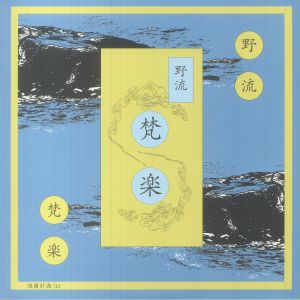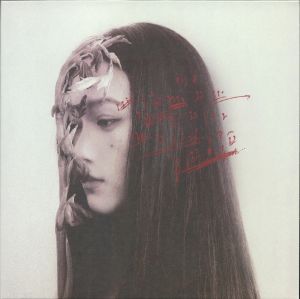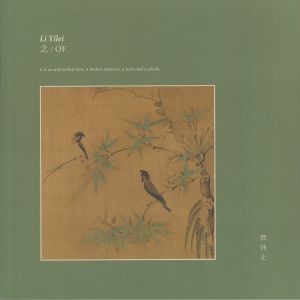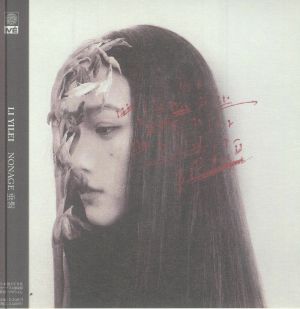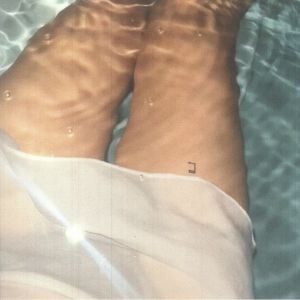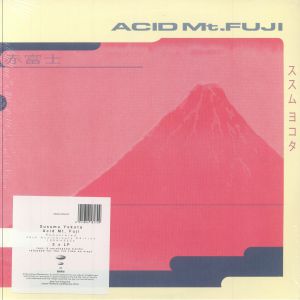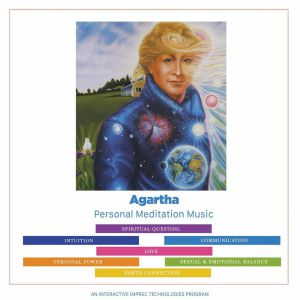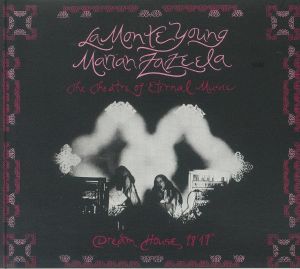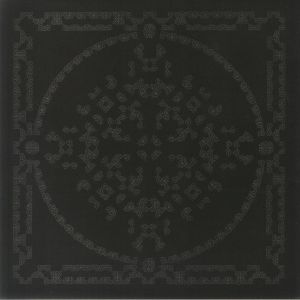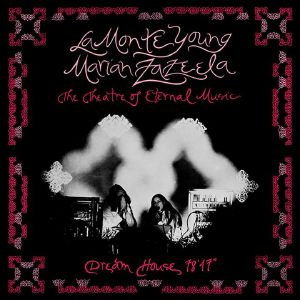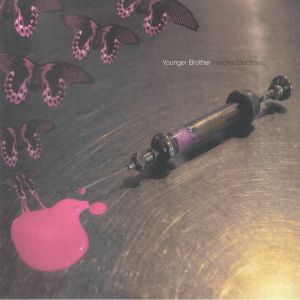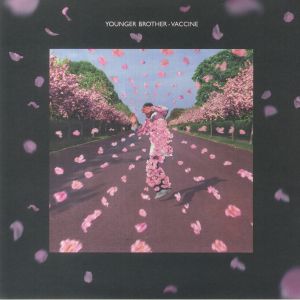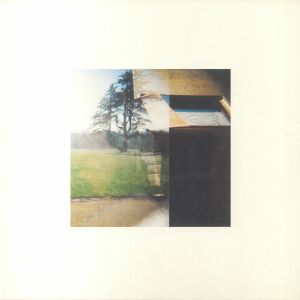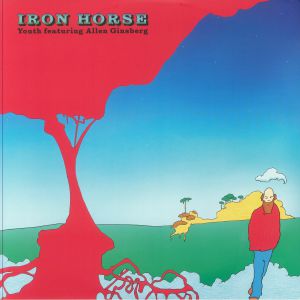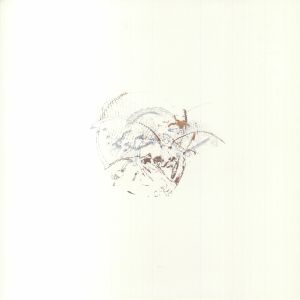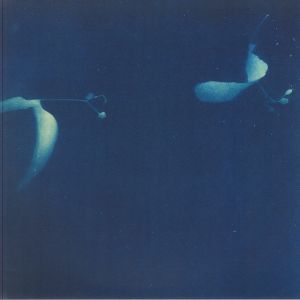Filter
Genre
在庫状況
音楽
アーティスト
レーベル
Featured
リリースタイトル
タグ
Back catalogue: Leftfield
Juno's full catalogue of Leftfield
アルバム
in stock $25.80
Played by: Juno Recommends Ambient/Drone
in stock $23.86
Moon Garden (CD with obi-strip)
Cat: 61761. Rel: 11 Feb 25
Review: In a collaboration for the ages, we hear German kosmische musician Hans-Joachim Roedelius (Cluster, Harmonia) team up with Japanese flutist Yuko Matsuzaki and Berlin Philharmonic analog musician sound engineer Onnen Bock for a nacreous improv blast. Spanning soft, pearly electronica and neoclassical, Moon Garden comprises five works, incorporating techniques and fragments of songs already released. A mythical aura unfurls through synth koto and organic harmonics; 'In The Forest Of Syrinx' establishes a singing bowled, new age aesthetic, segueing into the purely vocal threnody 'Sapphire Jellyfish'. Bridging electronic washes, piano and female vocals, this is a borderless soundscape of exciting proportions.
… Read more in stock $22.74
in stock $28.29
We Have Much More In Common Than What Divides Us (numbered yellow vinyl LP limited to 300 copies)
Cat: UKM 106. Rel: 15 Dec 22
in stock $37.45
Review: Adalsteinn Gudmundsson aka Yagya has long been at the forefront of the dub world, He has a fantastically painterly style that fauna him sweeping long-tailed chords across wide-open vistas and laying down smooth basslines that lock you in. The changing seasons of his native Incline have often been his chief inspiration and that's the case again here on his most dreamy work to date. The record is divided into the distinct moods of Spring ('Vor') and Autumn ('Haust') and is brilliantly escapist and evocative.
… Read more in stock $33.27
Fantasy Zone (translucent purple smokey vinyl LP + insert)
Cat: ASIPV 042. Rel: 01 Sep 23
Review: German musician Mary Yalex makes her debuts on A Strangely Isolated Place with a new album that offers up her vision of the future via a suite of lush ambient tunes. Yalex draws upon her day-to-day surroundings for inspiration and pairs soft melodies with vivid instrumentation. As the record unfolds, things get ever more future facing with darker moods and haunting vibes that tend toward dystopia. Her pristine synth work shines throughout the album and it all adds up to a thought-provoking listen as well las a notable label debut for Yalex.
… Read more in stock $27.46
in stock $32.72
Silent Hill 2 (Soundtrack) (CD with obi-strip)
Cat: KMCA 120. Rel: 01 Sep 23
in stock $23.28
Cyberpunk: Edgerunners (Soundtrack) (180 gram purple vinyl LP + insert with obi-strip)
Cat: 196588 63871. Rel: 22 Mar 24
Review: Akira Yamaoka, Marcin Przybylowicz and PT Adamczyk's original soundtrack for Cyberpunk: Edgerunners hears original OST numbers written for the award-winning anime series set within the futuristic dystopian world of Cyberpunk 2077, which originally spawned as the offshoot of the video game of the same name. Fitting for the music's breathy progressive house and electro oeuvre, which is interspersed with more traditional expressionist orchestral climaxes and builds, the Edgerunners series centres on a crack team of cyberpunk renegades, as they traverse the beastly underbelly of Night City, located in a futuristic vision of LA, navigating a world replete with corruption, gang violence, and cybernetic addiction. A note for fans: this vinyl edition includes unused, never-before-heard tracks composed by Yamaoka for Edgerunners, but which does not appear in the series.
… Read more in stock $40.78
in stock $49.64
The English Patient (Soundtrack) (Deluxe Edition) (gatefold 'saharan sun' translucent orange vinyl 2xLP)
Cat: 725579 1. Rel: 26 Mar 25
Review: The music from Michael Ondaatje's Booker Prize and 12-Oscar-winning film encompasses the original score by Gabriel Yared with the haunting vocals of Marta Sebestyen and Fred Astaire. It is a story which has successfully made its mark on every medium that counts a - a classic to beat all classics. It's a cathartic journey that explores identity, fidelity, and fate amid the chaos of World War II. Shot against the majestic backdrop of the Northern Sahara and Italy, Yared's score blends Hungarian folk tunes, baroque themes, and romantic orchestration and mirrors the emotion of the film's characters without relying on visuals. Period tracks by Fred Astaire, Ella Fitzgerald and Benny Goodman complement the emotional depth of the story.
… Read more in stock $38.82
in stock $26.75
Review: In Li Yield's Chinese homeland, the title of this album translates back to English as 'childhood' or 'dishevelled hair'. Both are fitting. The London-based multi-instrumentalist and composer follows on from 2021's spellbinding OF with a second full-length record, and this time looks to try and immortalise the experience of growing up young, seeing the world through wide open eyes and learning by engaging with it. The technical back story is impressive - Nonage is packed with outtakes of old Chinese TV shows, mechanical toys and instruments that were made by the artist for this project. Yilei's own childhood piano jams, and half-memories, are also interspersed. In the end, it's a beguiling listen, intriguing and curious, and consistently hazy, just like those recollections from when you were only just able to reach the counter top.
… Read more in stock $26.07
in stock $26.07
in stock $21.91
in stock $28.29
Acid Mt Fuji (30th Anniversary Edition) (gatefold 3xLP)
Cat: MMDS 24004LP. Rel: 11 Sep 24
Review: Susumu Yokota's venerated 1994 classic Acid Mt. Fuji is reissued in expanded, deluxe fashion, as part of the 30th anniversary celebrations of the label that originally released it. Japan's Musicmine - specifically its electronic subsidiary Sublime - released the album on June 29, 1994, simultaneously with Ken Ishii's Reference To Difference, as their inaugural joint offering. Tantamount to a fusion of ambient acid/rave - then still nascent in Japan - with new age music, Susumo Yokota was likely the best man for the job at the time. With his first album, The Frankfurt-Tokyo Connection, he'd not yet established his electro-pastoralist style, yet it was Acid Mt. Fuji that divined the latter-day emotes of Sakura, a new age so adroitly fused with electronica yet emulable by few. Though the later years of Yokota's life have been couched in a good deal of privacy and mystery, Acid Mt. Fuji certainly betrays a fittingly shrewd and introspective character on the part of the artist, one that served him well. Its long, drawn-out nature soundscapes - tempered by the piquant sounds of modern synths like the TB-303, which animistically, pseudohallucinogenically blend with the animal sounds themselves - recall something like an alpine augur's waking dream.
… Read morePlayed by: Gilbert - (Innate/MOS)
in stock $42.15
Cat: IMPREC 538. Rel: 09 Jan 25
CD1: Spiritual Questing
CD2: Intuition
CD3: Communication
CD4: Love
CD5: Personal Power
CD6: Sexual & Emotional Balance
CD7: Earth Connection
Review: Reissued on Important Records comes Agartha, which forms part of a long wave of easy listening and new age music made popular in the 1980s and 90s. Meredith Young-Sowers joins a class of musicians, from Eliane Radigue to Steven Halpern, who made music as utilities for meditation. Young-Sowers' work, however, may share an aesthetic with these knowns, but otherwise nurtures an eerier vibe. Agartha was originally released in 1986 on cassette, and is made up largely of unnaturally sustained sine tone unfurlings laid in harmonic or minor keys, as if to decouple the unsettling atmosphere of the music from their meditative capacity. Though it sounds like it, the record is not aleatory, rather it is composed expressly to sound like it has been transmitted from an extimate point outside of human consciousness. No wonder it is named after a mythical land said to lie deep below the Earth's crust!
… Read more in stock $47.15
Cat: SV 199CD. Rel: 21 May 24
Review: La Monte Young is one of the most important figures in the development of American minimal composition and performance, having explored the science of sound at an atomic level through his use of just intonation and rational number-based tuning systems. His wife Marian Zeeler was also one of his closest collaborators, and in 1974 they released their second album Dream House 78'17" as a demonstration of the ideas they had been proposing in their work. Side A was recorded at a private concert which also features Jon Hassell and Garrett List, while Side B is an extended tonal study via a bowed gong, which was monitored precisely through oscilloscopes for an exacting immersion in harmonic interplay and its physical and psychoacoustic properties.
… Read more in stock $22.18
31 VII 69 10:26 10:49 PM (reissue) (LP + MP3 download code)
Cat: SV 198LP. Rel: 03 Apr 23
Review: Fluxus drone pioneers La Monte Young and Marian Zazeela present the latest reissue of 31 VII 69 10:26-10:49 PM/23 VIII 64 2:50:45-3:11 AM The Volga Delta, a historic and mesmerizing soundworld which captures the '60s pioneers' twin paths through the worlds of performance art, sculpture-based acousmatic music, and an overall real alternative beatnik lifestyle . Made between 1964 and 1969, the album has gone down in history as a captivating fusion of dreamy electronic sounds and Eastern-influenced vocalization, with techniques such as microtonal tuning and extended repetition laying its experimental groundwork.
… Read more in stock $33.27
The Theatre Of Eternal Music: Dream House 78 17 (reissue) (gatefold LP + MP3 download code)
Cat: SV 199LP. Rel: 20 May 24
Review: American minimalism pioneers La Monte Young and Marian Zeeler released their second album in 1974, when they were already well-established in the US avant-garde. This serves as a document of their work and ideas at the time, with two very different sides on offer. The first side was recorded at a private concert, in which Young and Zeeler's voices interact with sustained drones and some occasional trumpet from Jon Hassell and trombone from Garrett List. The second side focuses on a bowed gong study, ruminating on the particulars of frequency and harmonics and their potential effects on the listener and the space in which they're heard.
… Read morePlayed by: Ekoplekz, Juno Recommends Ambient/Drone
in stock $42.99
Vaccine Electronic (remastered) (180 gram vinyl 2xLP)
Cat: TWSLPYB 2RM. Rel: 24 May 23
Review: The twin 'electronic' album to the supposedly 'acoustic' album that came before, Vaccine Electronic is Younger Brother's eight-track compendium of electronic versions of the 2011 album 'Vaccine', released three years later. Packed with may a psytrance meltdown and crystalline glitch-freaks - as if our ears had just been injected with a new experimental psilocyboid - choice tracks such as 'Night Led Me Astray Electronic' lay especial claim to Posford and Vaughan's mammoth production skill, in contrast to their matchable songwriting ability as defined on the earlier album.
… Read more in stock $33.84
in stock $34.67
in stock $33.27
in stock $21.63
Review: Club culture can be curiously misled at times. While the focus is so often on breakdowns, in reality it's the hypnosis of looped drums and hi hats that often captures our imagination. And while belters frequently steal the limelight, in doing so we're at risk of forgetting the unifying, open-armed foundations that are found in everything from techno to hardcore to jungle and beyond. Brutal Flowers certainly makes a strong case for rethinking priorities. "A no-airs and graces piece of cool future-proof ambience" the label puts it. We'd agree. YS's stunning record seems to speak to our inner dreams of what rave has been and could still be, it hits nail-on-head in turning the emotions of surreal walks home post-club with friends into beautiful, understated yet grand synth overtures. It never forgets that heads down and ethereality are not opposites, but instead two halves of the same passion, and thoughtfulness is really the only secret ingredient in the dance music spectrum.
… Read morePlayed by: Alexis Le-Tan
in stock $35.49
Review: Miki Yui's As If is a captivating exploration of sound, blending organic elements with modular synthesis to create an immersive sonic landscape. Inspired by her 2018 experience in the Amazon rainforest, Yui found parallels between the natural sounds of the jungle and the modular electronics she had been exploring for decades. The result is a series of compositions that evolve and mutate slowly, much like nature itself, emphasising subtle shifts in texture and tone. Tracks like 'Generativ' are a lively, kinetic energy, with ticking and clacking electronics that seem to hover and rotate, revealing intricate patterns with each listen. In contrast, pieces such as 'Song 4' provide a more tranquil, reflective atmosphere, evoking a calm, late-night ambiance. 'Summernight' captures the humid essence of a tropical sunset, layering rich tones that feel both familiar and otherworldly. As If draws loose comparisons to the works of Laurie Spiegel and Eliane Radigue, but Yui's approach is uniquely her own. Her compositions feel almost tactile, with each sound carefully shaped to form a physical presence in the listener's environment. A poetic study of sound's capacity to evolve naturally, creating deeply sensory, listening experiences.
… Read more in stock $22.18

 USD
USD






